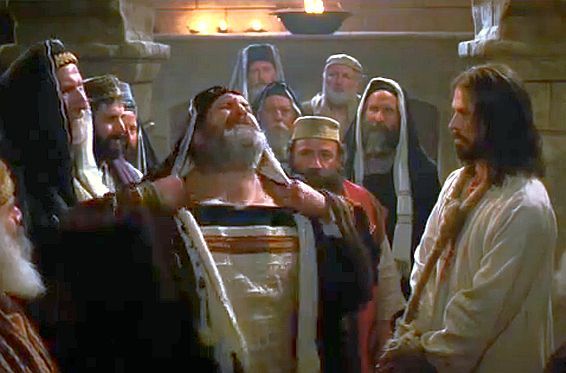That Jesus was to be convicted on some charge or other, and be put to death, had been already determined by the priestly judges; their failure to find witnesses against Him threatened to delay the carrying out of their nefarious scheme. Haste and precipitancy characterised their procedure throughout; they had unlawfully caused Jesus to be arrested at night; they were illegally going through the semblance of a trial at night; their purpose was to convict the Prisoner in time to have Him brought before the Roman authorities as early as possible in the morningas a criminal duly tried and adjudged worthy of death. The lack of two hostile witnesses who would tell the same falsehoods was a serious hindrance. But, at the last came two false witnesses, and said, This fellow said, I am able to destroy the temple of God, and to build it in three days. Others, however, testified: We heard him say, I will destroy this temple that is made with hands, and within three days I will build another made without hands.i And so, as Mark observes, even in this particular their witness or testimony did not agree. Surely in a case at bar, such discrepancy as appears between I am able to and I will, as alleged utterances of the accused, is of vital importance. Yet this semblance of formal accusation was the sole basis of a charge against Christ up to this stage of the trial. It will be remembered that in connection with the first clearing of the temple, near the commencement of Christs ministry, He had answered the clamorous demand of the Jews for a sign of His authority by saying, Destroy this temple, and in three days I will raise it up. He spoke not at all of Himself as the one who would destroy; the Jews were to be the destroyers, He the restorer. But the inspired writer is particular to explain that Jesus spake of the temple of his body, and not at all of those buildings reared by man.j
One may reasonably inquire as to what serious import could be attached to even such a declaration as the perjured witnesses claimed to have heard from the lips of Christ. The veneration with which the Jews professed to regard the Holy House, however wantonly they profaned its precincts, offers a partial but insufficient answer. The plan of the conspiring rulers appears to have been that of convicting Christ on a charge of sedition, making Him out to be a dangerous disturber of the nations peace, an assailant of established institutions, and consequently an inciter of opposition against the vassal autonomy of the Jewish nation, and the supreme dominion of Rome.k
There is so much more.Click this link to read the rest.
https://www.lds.org/manual/jesus-the-christ/chapter-34?lang=eng

